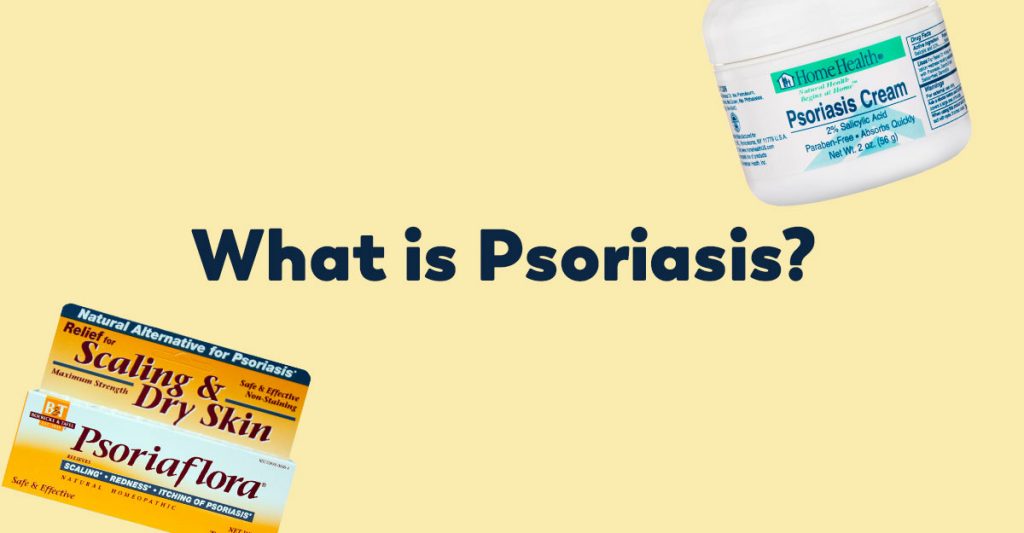
Affecting more than 8 million people in the U.S., psoriasis is a skin condition believed to be caused by immune dysfunction and inflammation. It usually appears as itchy, red, scaly patches on the elbows, trunk, and scalp. Although there is no cure for psoriasis, those who live with it can often identify their personal inflammatory triggers and learn to manage it successfully.
Understanding Psoriasis
The visible psoriasis patches are a result of dysfunctional skin production. Normally, your body produces new skin cells which are produced deep in the epidermis and then slowly surface. This process usually takes about a month. Psoriasis happens when this production ramps up, speeding to as fast as two days. All these extra skin cells then build up into scaly patches, or visible psoriasis.
Psoriasis flare ups typically come and go, flaring for a few weeks or even a month, and then lying dormant for a while. Often, psoriasis may even go into remission. These flare ups can have a number of different causes including; medication changes, stress, overconsumption of alcohol, injuries, or infection.
Learn About the 5 Types of Psoriasis
There are 5 common types of psoriasis, which may present differently from person to person.
Plaque Psoriasis
The most common type of psoriasis (accounting for 80% of all psoriasis diagnosis) plaque psoriasis can appear anywhere on the body. This form of psoriasis presents as inflamed, patches of itchy, painful scales on the skin. The color of the lesions will vary in shade depending on skin tone.
Inverse Psoriasis
The second most common form, inverse psoriasis affects roughly 25% of those living with psoriasis. This type of psoriasis is unique in that the skin appears smooth and red, rather than scaly and flaky.
Guttate Psoriasis
Appearing as small, round, red spots, guttate psoriasis typically shows up on the arms, legs and torso. This form of psoriasis occurs in 8% of psoriasis diagnosis.
Pustular Psoriasis
Presenting as painful, pus-filled bumps, this rare form of psoriasis can appear anywhere on the body, but can also be localized to the hands or feet.
Erythrodermic Psoriasis
Erythrodermic psoriasis is very rare, accounting for only 2% of psoriasis cases. This presentation of psoriasis includes vibrant redness in large patches, which often shed in layers from the body.
Psoriasis Treatments
There are many ways to treat and manage Psoriasis from lifestyle management to medication. Your doctor may start with a skin biopsy to determine what type of psoriasis you have before moving into a treatment plan.
- Topical Therapies
Corticosteroids are often prescribed in the form of cream, gel, or shampoo as a first step in psoriasis treatment. Other topical treatments include Vitamin D, retinoids, salicylic acid (like this Salicylic Acid 2% Roll On from Life Flo), and coal tar.
2. Light Therapies
For those living with moderate to severe psoriasis, light therapies are a common treatment. These involve exposing the skin to safe amounts of natural and artificial light to slow the growth of skin cells and treat flare up patches.
3. Oral Medications
Generally a last line of treatment, oral medications may be helpful when topical treatments fail. These include retinoids, corticosteroids, and methotrexate.
4. Natural Supplements & Treatments
Homeopathic remedies may also be helpful in managing minor psoriasis issues. Maximum Strength Psoriaflora Cream from Boericke & Tafel improves upon traditional coal tar products by calming skin without leaving residue or staining. Psoriasis Cream from Home Health is another topical treatment that uses salicylic acid to promote the relief of itching, irritation, redness, and scaling.
Do you manage psoriasis? What have you found to be helpful?
